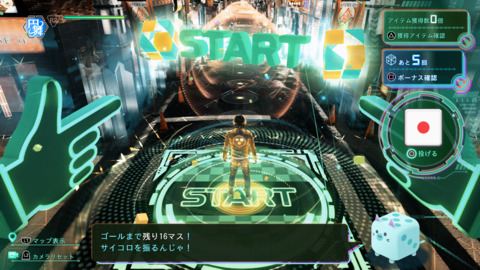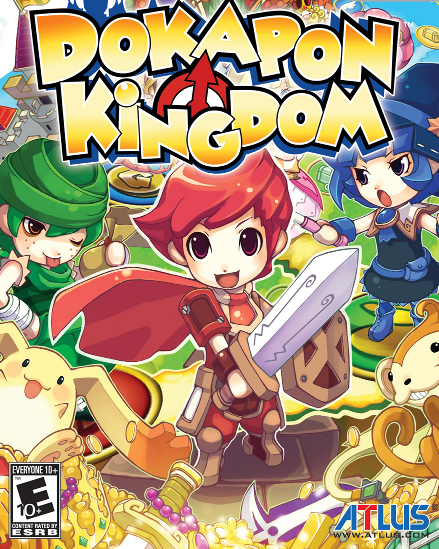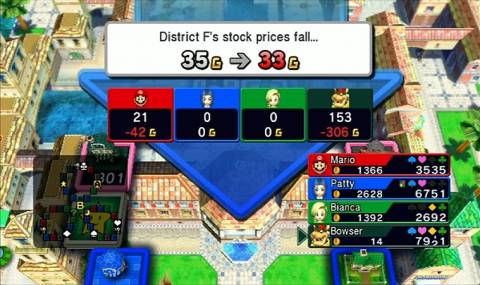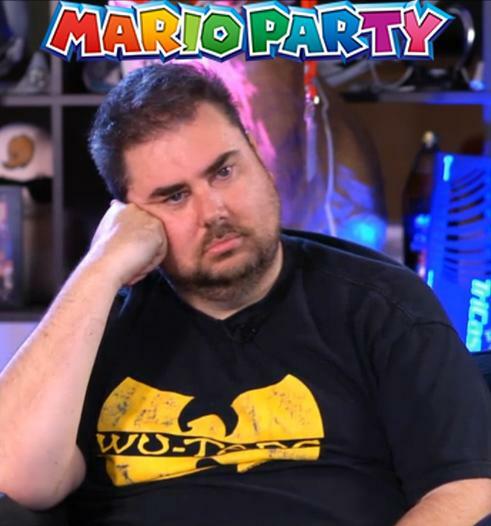A Minor Primer: Sugoroku
By Mento 5 Comments

I created the last "A Minor Primer" because I wanted to elaborate on something I'd bumped into a few times while playing Japanese games and researching them for various Wiki Projects - specifically in that case the origins and evolutionary path of Japanese adventure games, and the way they've since branched out into mostly-passive visual novels and routine-micromanaging dating sims - and it was while playing Sega's Judgment (the Yakuza spin-off featuring ex-lawyer Takayuki Yagami) that I encountered something else that I wanted to dig into more: how many Japanese board game video games and board game mini-games are based on a specific thing called Sugoroku.
Sugoroku, which literally translates as "double six," is an ancient Chinese board game similar to backgammon which was thought to be introduced to Japan in the sixth century. In that sense, it has a similar background as Mahjong or Shogi - both of which see many video game adaptations as well, and are also playable mini-games in Judgment. Eventually, around the 12th or 13th century, a different Sugoroku variant rose to prominence - known as E-Sugoroku, with the original referred to Ban-Sugoroku - which had simpler rules and was more accessible to children. E-Sugoroku plays much like Snakes/Chutes and Ladders, where many if not all board spaces will activate some kind of positive or negative effect; this might involve moving ahead or back a few spaces, losing a turn, or being allowed to roll again.
With Sugoroku being as popular as it is with younger Japanese generations, many of its video game adaptations were borne of developers needing to make something out of a licensed property they had acquired that was maybe also intended for children (Doraemon, perhaps, or Crayon Shin-chan). In my time spent researching the libraries of the Super Famicom, PC Engine, Japanese Sega Mega Drive, and the original Famicom, I kept bumping into these rudimentary dice-rolling board games (or rather, their many variants) and wondering why they were so prevalent. Turns out it's due to two factors: a pre-existing board game that was more popular in Japan than elsewhere, and perhaps a certain lack of imagination from these tie-in developers.
Variants
Beyond the standard "reversal of fortune" dynamic, the basic mechanics of Sugoroku are often given extra flourishes by certain video game adaptations to better utilize the unique advantages of the medium. Below are a few of the major off-shoots I've encountered, though I'm sure this list is far from complete.
Dokapon

Asmik Ace's hybrid of Sugoroku and JRPG is one of the most common variant types, though conversely it's not one that leaves Japan all that often. Event squares can now include battles with monsters, treasure chests with items and other bonuses, or the usual type in which some fortunate or unfortunate happenstance occurs to the player. The goal is usually to accrue a large sum of money: this can be done by liberating grateful towns of monsters, or defeating high-level targets which tend to leave behind high-level spoils. The player also needs to invest in healing items and equipment which might affect their bottom line for that turn but will pay off in the long run. Losing to monster fights might also incur a cash penalty, or some other inconvenience such as being returned to the starting square.
The first Dokapon game, as far as I can tell, was Kessen! Dokapon Oukoku IV: Densetsu no Yuusha Tachi for the Super Famicom. (The "IV" in its title actually refers to the maximum amount of players it supports.) Of the twelve games in the series, only three saw localizations into English: 2001's Dokapon: Monster Hunter for GBA (unaffiliated with Capcom's MonHun franchise), 2007's Dokapon Kingdom for Wii and PS2, and 2008's Dokapon Journey for Nintendo DS.
Fortune Street & Billion Road

In truth, the line between Sugoroku and a property management game like Monopoly is relatively slim, as both can involve massive swings in the player's standings depending on how they roll. Monopoly even has a two dice system where doubles confer extra benefits, which was a core tenet of the original Sugoroku also.
However, the two franchises listed above take the concept even further with how properties will change in value dependent on other board events, making these games not only far more chaotic and unpredictable but - given how often all these high-digit numbers change on a whim - something that's only really possible with a video game CPU running all those calculations in the background.
Fortune Street, also known as Itadaki Street in Japan and Boom Street in Europe, is a Sugoroku franchise originally devised by Yuji Horii, the creator of Dragon Quest. It's subsequently why Dragon Quest characters and symbols (such as the ubiquitous grinning Slime) are closely associated with the Itadaki Street games. So far, only two games in this series have been released in the west: 2011's Fortune Street for Wii, and 2012's Fortune Street Smart for iOS and Android. One mechanic that sets it apart from something like Monopoly is that a player can also buy "stocks" in a street, or a set of connected properties: even if you don't own those properties yourself, it's possible they will see a lot of development soon - maybe because someone else bought them - and you'll get a cut of the money that goes into that development by investing wisely. Of course, properties have a tendency to tank in value also contingent on certain board events, so it's as much of a crapshoot as the real stock market.
Billion Road has a similar premise, purchasing properties that regularly increase or decrease in value, with the overall goal being to hit its billion yen target. Players can also recruit monsters that will occasionally help them out, though there are also nuisance monsters that exist to make life harder for whichever unlucky player is burdened with them. Billion Road was released on Steam and Switch a few years back, and is one of the few "financial Sugoroku" games to see a localization.
There's a few other more finance-focused Sugoroku-inspired games like the above out there too. Hudson's (later Konami's) Momotaro Dentetsu ("Momotaro Electric Railway") series, for example, which are railroad development simulators that feature Sugoroku boards to move around on. Momotarou Dentetsu actually began as a pun on Momotaro Densetsu ("Momotaro Legend"), a series of Dragon Quest clones based on the titular Peach Boy of Japanese folklore. Needless to say, the more imaginative (and perhaps incongruous) railroad tycoon spin-offs proved to be the more enduring of the two properties.
Jinsei Game

If you can draw a parallel between Fortune Street and Monopoly, then you could probably do so between the Jinsei Game and Milton Bradley's The Game of Life. The titles literally mean the same thing, after all. The Game of Life is perhaps the closest Sugoroku equivalent played in the west, as almost every space on a Game of Life board will affect your fortunes one way or another, with the net result being a better (or lesser) lifetime of financial, romantic, and vocational success.
Many Japanese video games based on Jinsei Game are either one-to-one adaptations or variants that might only focus on one particular stage of a person's life - highschool, for example - or one particular aspect of a person's life - their lovelife or their careers - or have the player live through a historical period, or perhaps even a high fantasy or sci-fi setting. The throughline is that they track income or "happiness" as the victory condition, and that the boards usually have a cyclical format where each rotation of the board will progress time and perhaps modify the layout and/or event squares. They usually don't allow you to acquire and develop property however, setting themselves apart from the Fortune Street variants above.
As for versions of this variant that are available in English, there's a post-game bonus mode in the third Danganronpa game (Danganronpa V3: Killing Harmony) that - like previous post-game bonus modes - reimagines the world of Danganronpa as a normal highschool experience rather than the subversive bloodbaths that are the game's bread and butter. In this mode, the goal is to graduate from Hope's Peak Academy by building stats, fighting Monokuma-themed enemies, and befriending the other students (which also included characters from the first two Danganronpa games). It's far more elaborate than you'd expect from a bonus mode, though also a lot more grindy and luck-based: not entirely unexpected of Danganronpa developers Spike Chunsoft, who are also the developers of the grindy and luck-based Mystery Dungeon roguelike franchise.
Mario Party

You probably knew this was coming. For western gamers, the luck-based dice and board video game that immediately comes to mind - perhaps vividly like a sudden PTSD flashback - are Hudson's Mario Party series. Yes, these things are all based on Sugoroku as well: its one significant deviation from the norm being the mini-game interludes between each round which pits players against each other in games of skill and chance.
Using Sugoroku as a delivery model for mini-games proved to be as compelling a video game-specific format for the venerable board game as any other, and it might not surprise you to learn that games of this sort have been kicking (Jeff) around much longer than Mario Party itself. Mario Party certainly kicked off a wave of similar formatted games with other mascot characters - Sonic Shuffle, Animal Crossing: Amiibo Festival, and Wii Party come to mind (though not Crash Bash since it doesn't use a board and dice) - but as the below list attests there's been experiments with this format since the early '90s.
I mentioned Judgment has a Sugoroku mode, which takes place in a VR game-within-a-game, and while it's closer to Mario Party than any other variant due to the mini-games you perform on certain spaces - the lockpicking mini-game or a fight with specific rules, for example - it's distinct for being a solo experience. The goal is to reach the end of the course within a limited number of dice rolls, though you can increase your stock of rolls by completing those aforementioned fights as well as by purchasing related skill tree upgrades. It's one of the more potentially lucrative side-activities in Judgment, though opportunities to play are a little limited due to a "play pass" system: finding these passes out in the wild is a relatively uncommon occurrence.
Mario Party's other significant departure from Sugoroku is that someone usually wins Sugoroku, as opposed to nobody.
More Examples
And now, a list of Sugoroku-based games I've encountered while working on the wiki. I've included their systems, their variant type, and their associated licensed properties where applicable. This might give you some impression of Sugoroku's popularity.
